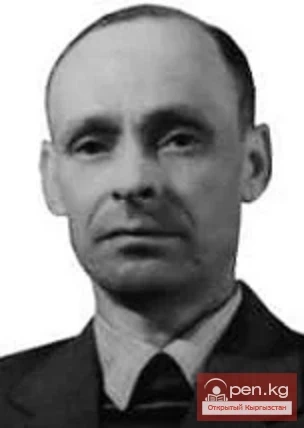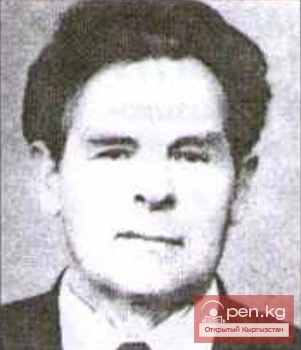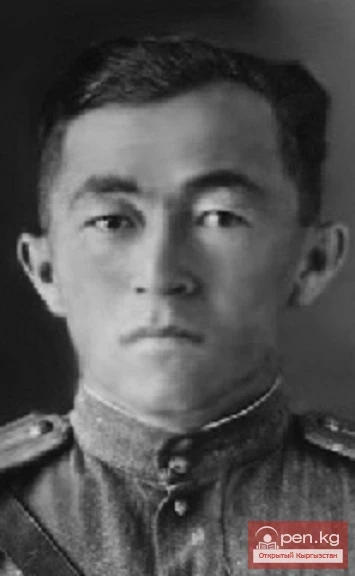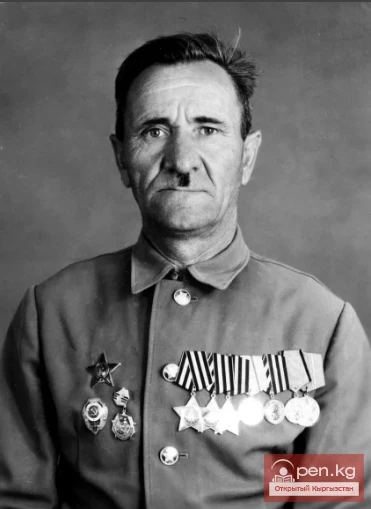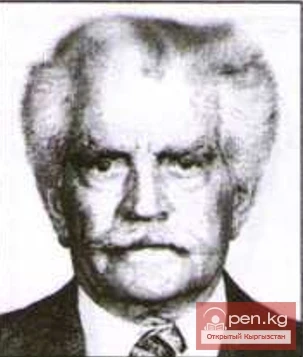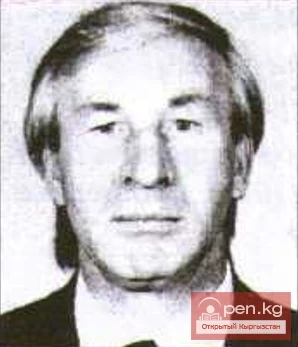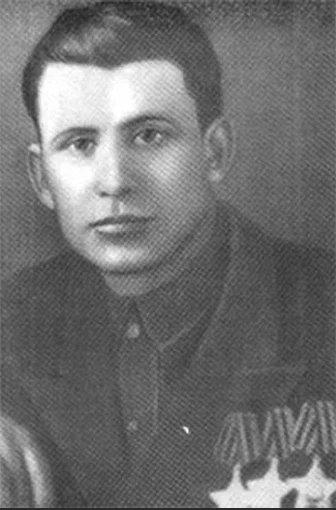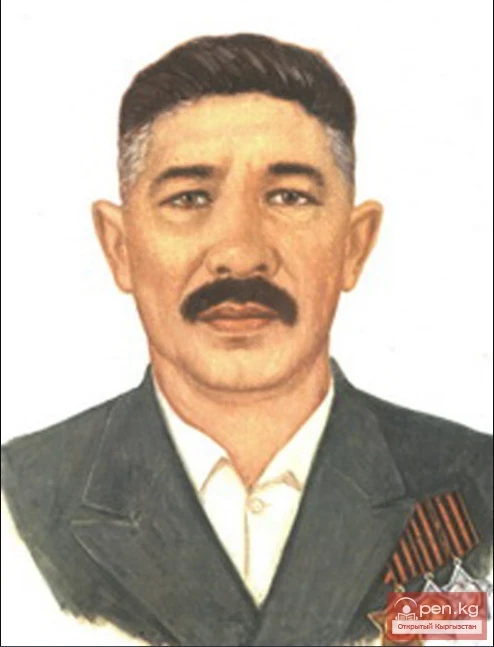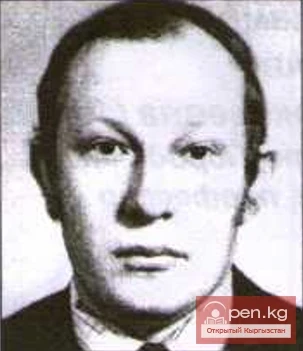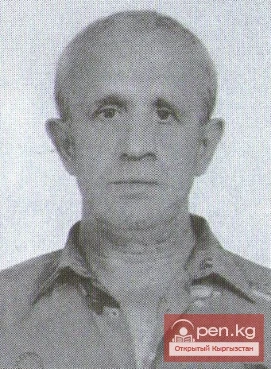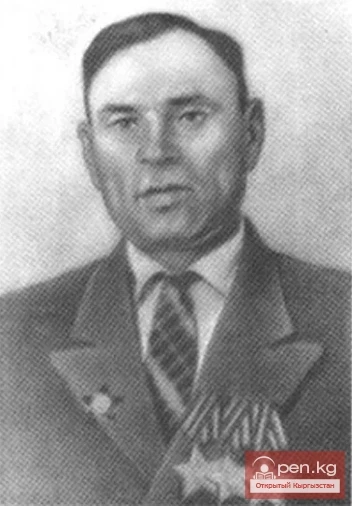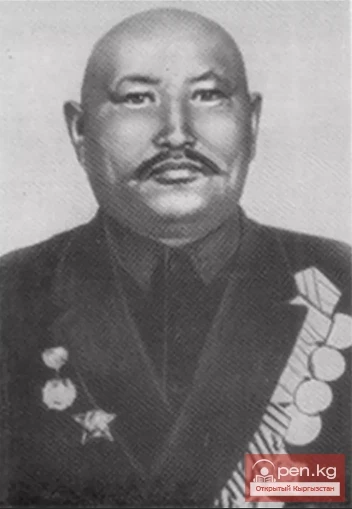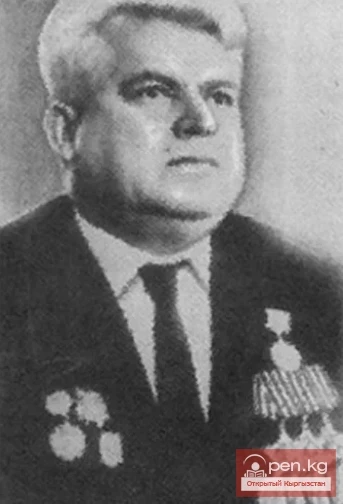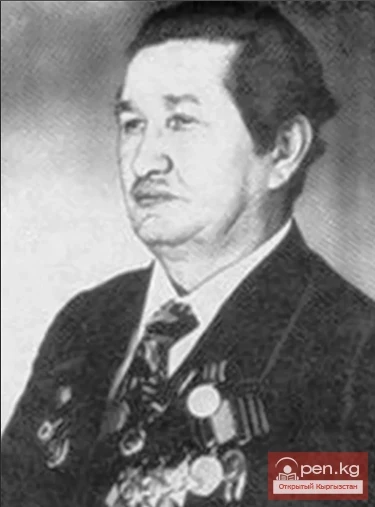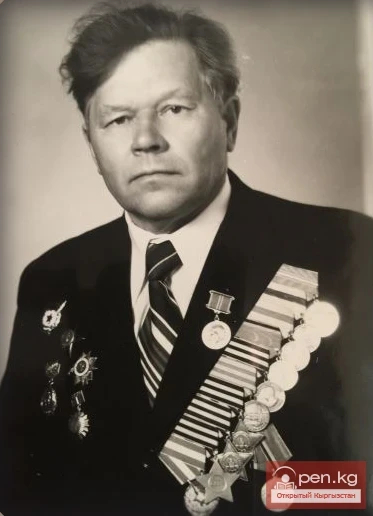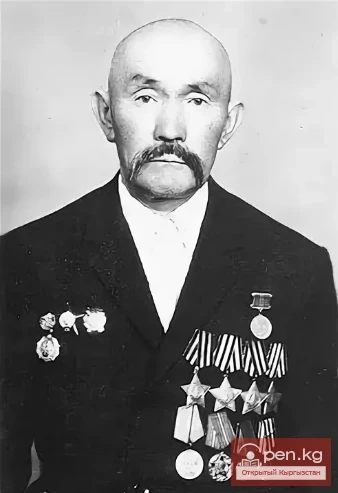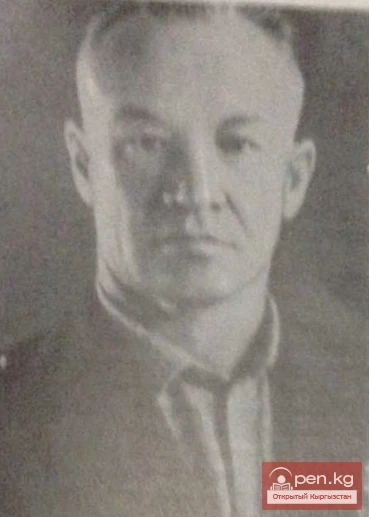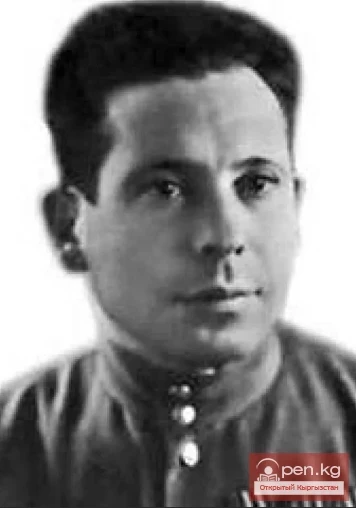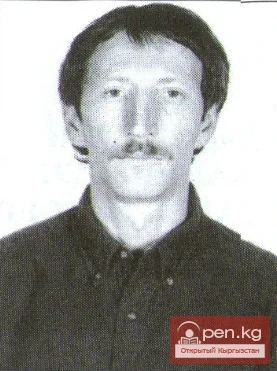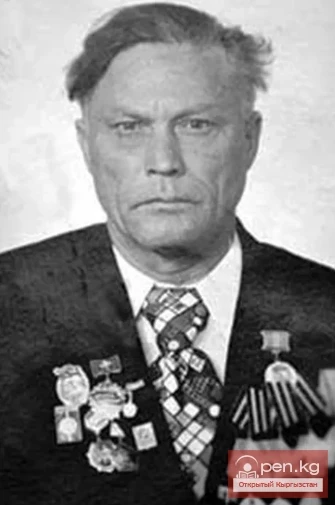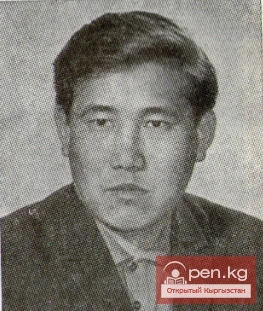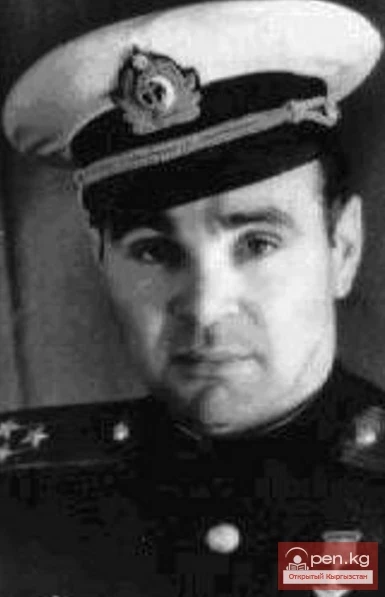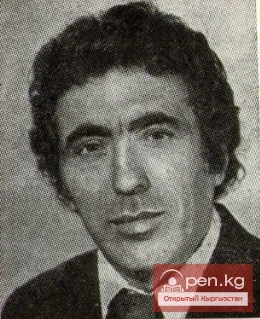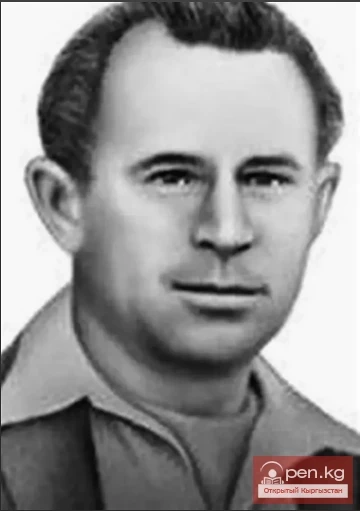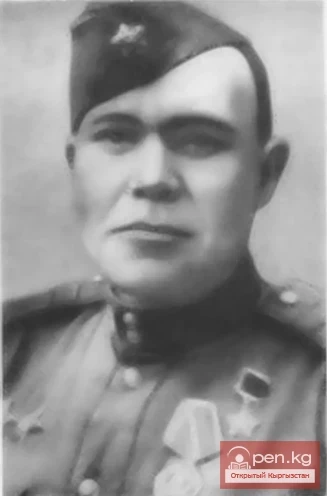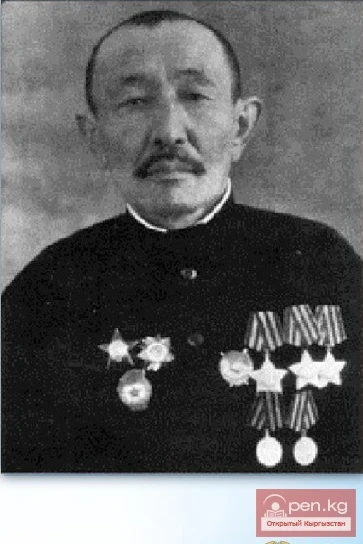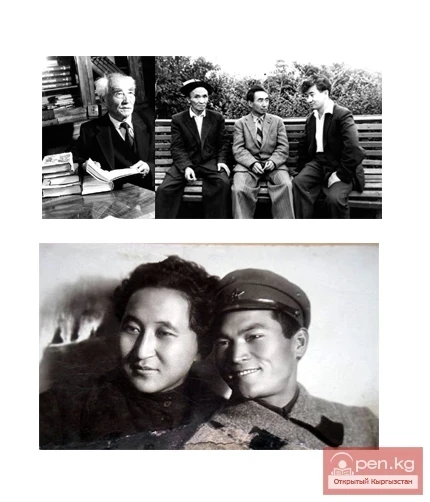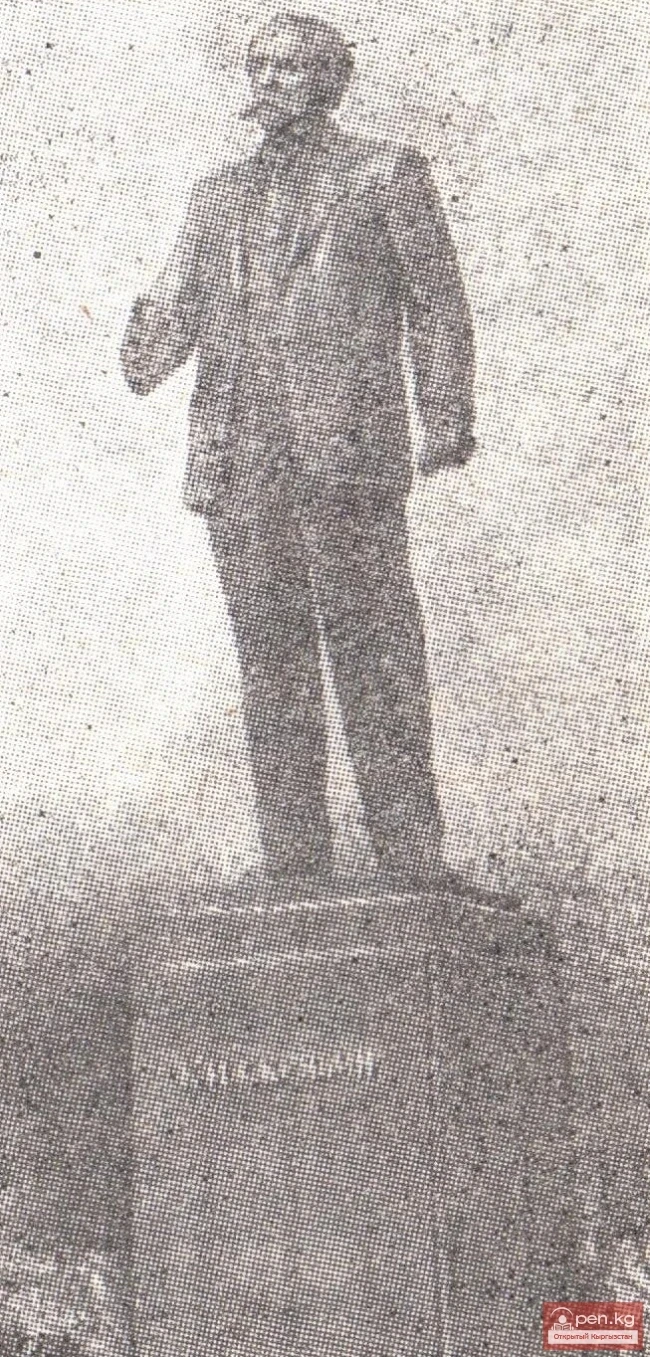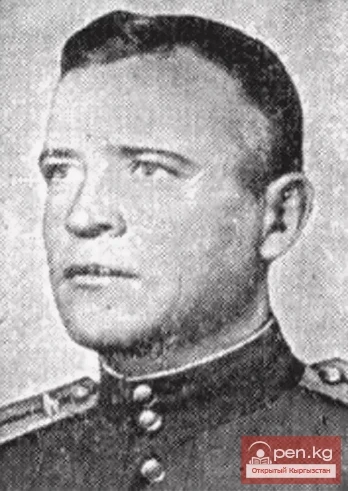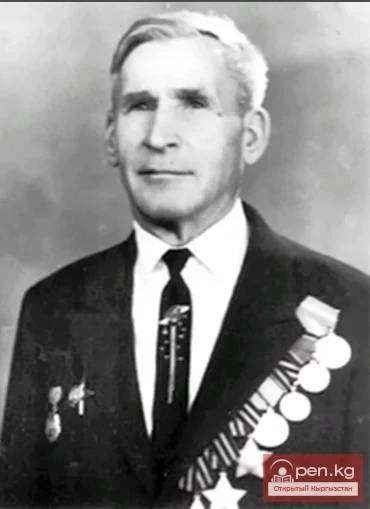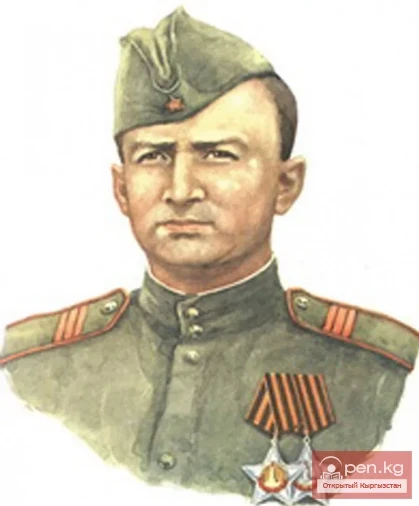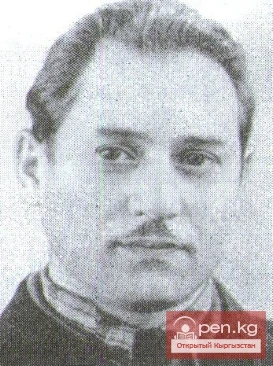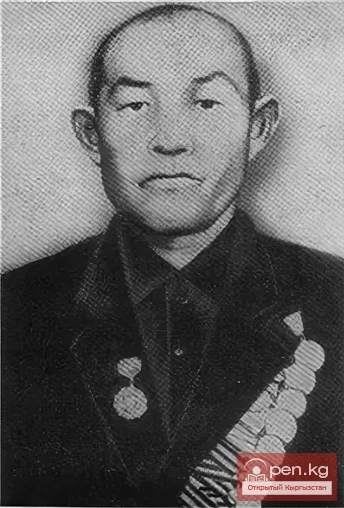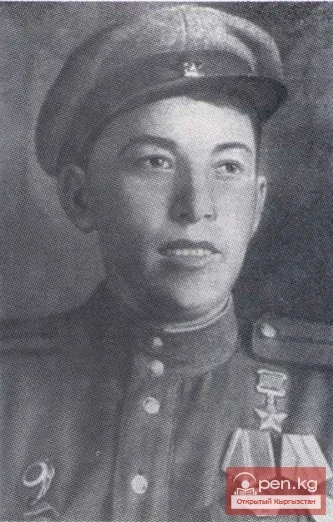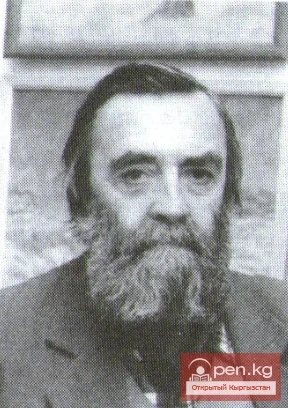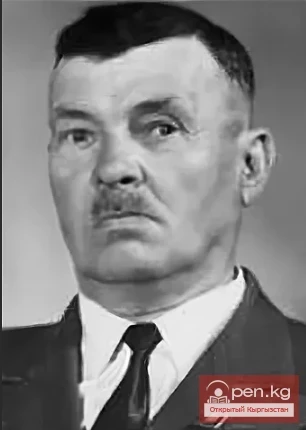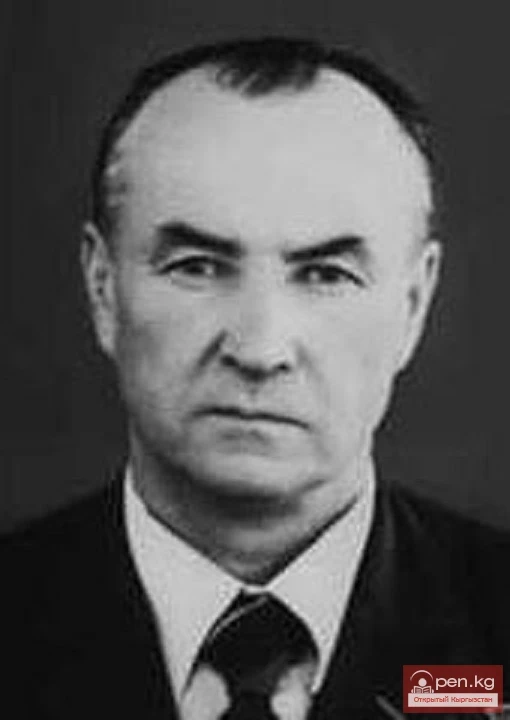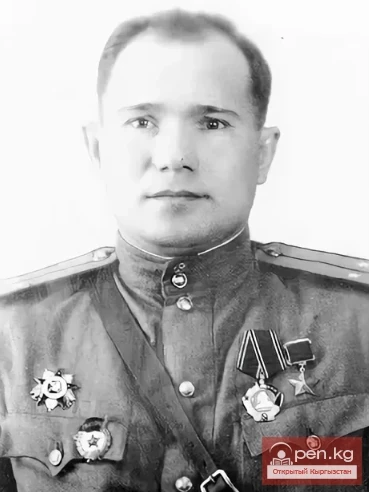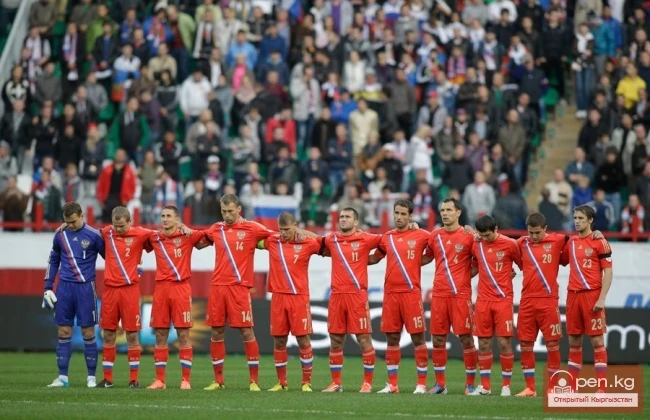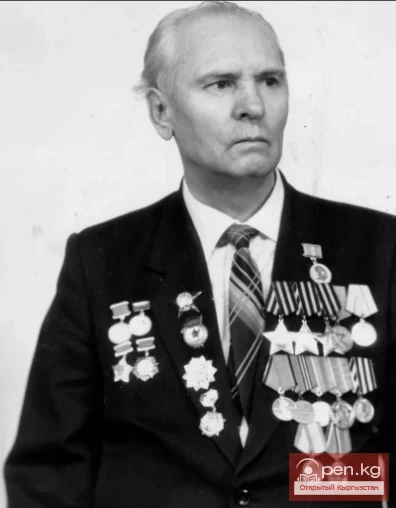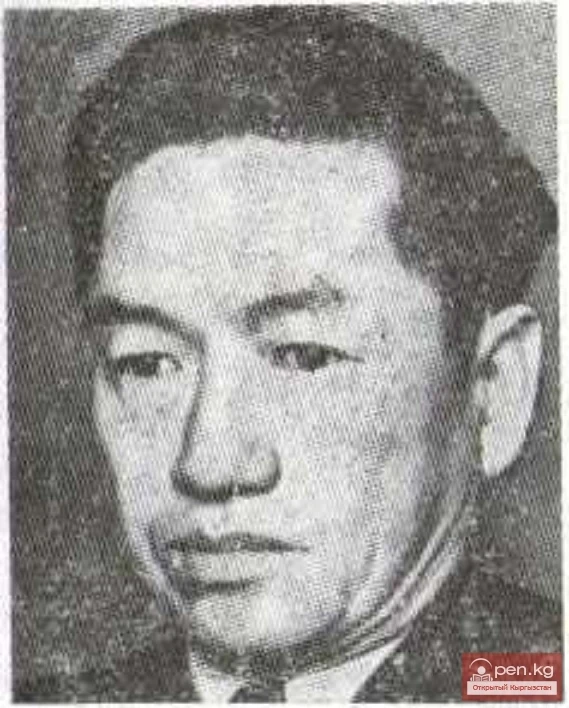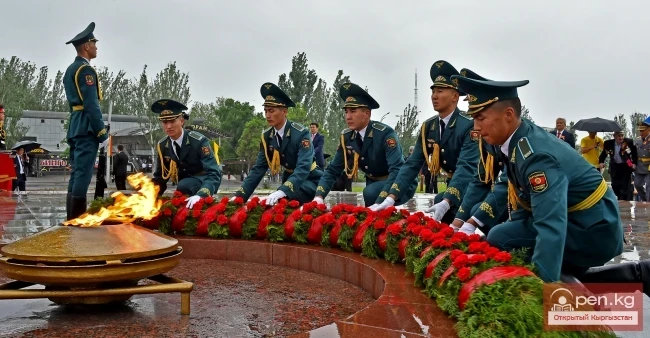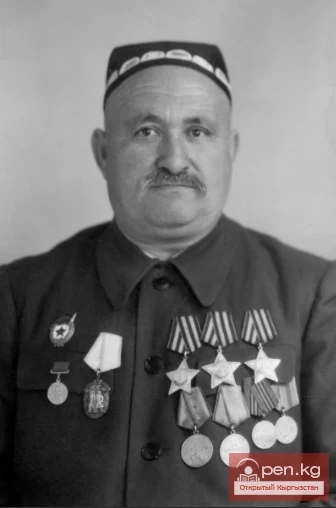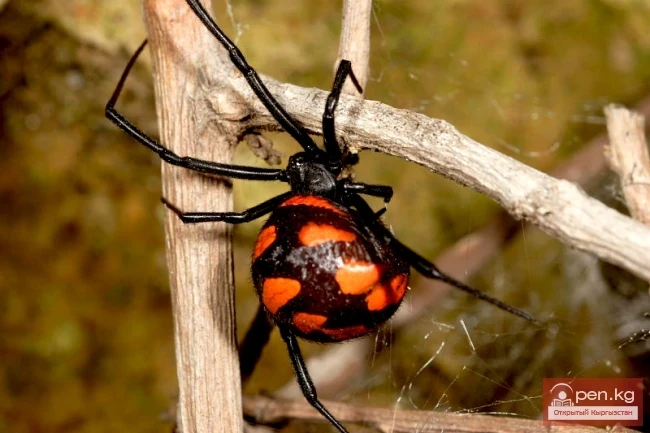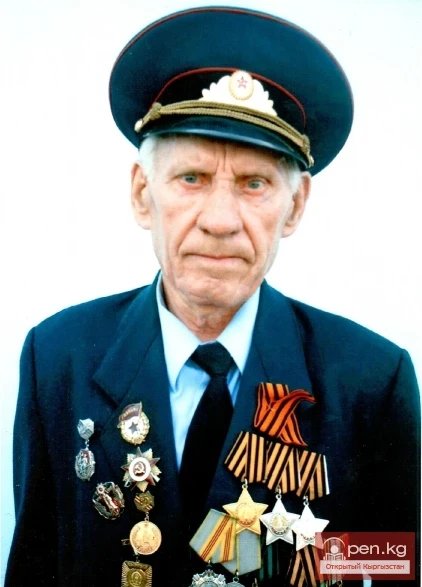
Abramov Alexey Fyodorovich
Rifleman of the 116th Tank Brigade (8th Mechanized Corps, 70th Army, 2nd Belarusian Front), Red Army soldier.
Born on December 31, 1925, in the village of Danilovka, now in the Belebeyevsky District of the Republic of Bashkortostan, in a working-class family. Russian. In 1935, he moved with his parents to Kyrgyzstan. In the city of Jalal-Abad, he completed 7 grades of school. With the onset of the war, he began working as a laborer on a state farm, then worked at mine No. 39 of the Kok-Yangak mine in the Osh region (now the city of Kok-Jangak in the Jalal-Abad region of Kyrgyzstan), where he was an electric locomotive driver.
In 1943, he was drafted into the Red Army. He arrived at the front… under escort. He did not report to the military enlistment office on time and was arrested as a draft dodger.
By court verdict, he received "8 years with dispatch to the front in penal battalions." His combat baptism in the 11th Separate Army Penal Company took place on the Kalinin Front in August 1943. He participated in battles for the city of Dukhovshchina - an important stronghold on the way to Smolensk.
As an eighteen-year-old, Alexey was already at the front near Smolensk.
A short rally before the offensive and — into battle.
The company where Alexey was located went on the attack. They drove the Nazis out of the trenches and pursued them for four kilometers, but in the marshy thicket, they stumbled upon the second line of defense. The fighters had to lie down and dig in.
Alexey found himself next to the company commander Tryapukin.
— You will be a liaison,— he said, looking over Alexey's strong, stocky figure.
Alexey nodded but did not know what that meant. "The job will show," he thought, while digging in like the other Red Army soldiers.
The Germans regained their senses, opened fire from machine guns, making it difficult to secure their positions.
The whistling of bullets overhead was unsettling; he thought that one might pierce his body, but the worried captain was nearby, and Alexey pushed those thoughts away. When he sheltered in a cell, he completely stopped paying attention to the bullets, digging a trench to connect with the captain's cell. The ground was soft, peaty, and easy to dig...
— Well, we broke away,— the captain lamented,— we must definitely hold this position.
Suddenly, two soldiers rolled into the trench next to Alexey.
— We are the liaisons,— said one, panting. The second asked: "Where is the captain?" The captain looked out. And immediately, bullets buzzed over their heads like a swarm. The Germans had noticed the command post and concentrated their fire.
The sun, as if on purpose, rose above the grove and illuminated this glade with sparse bushes. The fog from the swamp was in no hurry to descend upon it, and the air was fresh.
"Just like in our mountains," thought Alexey.
The captain ordered the liaisons to return to the soldiers so they could move up to the front edge.
The first liaison managed only to peek out of the trench and was shot dead. The second crawled a few steps and also froze forever.
— But we must, Alyosha,— said the captain.
"Clearly — the Germans are preparing to attack," Alexey understood.
He listened to the bullets, prepared to jump out of the trench, and leaped at a moment when he no longer caught the familiar whistling of bullets and did not crawl further but rolled, tumbling until he found himself among the hummocks overgrown with dry sedge.
Now he crawled, but he was not in a hurry, choosing a path between the largest hummocks. He thought about the order he must deliver to the commanders of the lagging platoons at all costs.
They met him at the edge of the thicket, looking closely, searching for bloodstains on his greatcoat.
— Not wounded? — asked one, not believing his eyes.
— Just scratched...— Alexey clumsily bandaged his finger on his left hand. Someone laughed and helped him.
— The order is this,— Alexey relayed,— to observe until evening and, if necessary, support the captain, and at night to move to the front edge.
— Understood,— replied the elderly platoon commander.
The sun had just touched the tops of the forest. The enemy's trenches were in shadow, and the same shadow crept over the glade where the captain and about a dozen soldiers were dug in. It was getting cool. The fog over the swamp settled like frost. The machine guns fell silent.
And then complete silence fell, in which the chirping of a magpie seemed like the crack of an anti-aircraft machine gun.
"So this is what war is like," thought Alexey, "like work — it must be done with skill."
Twilight fell slowly, the dawn did not fade behind the forest for a long time, then the darkness was pierced by rockets and tracer bullets.
Alexey crawled into his trench along with the elderly platoon commander. The captain shook his hand:
— I will recommend you for a reward — you deserve it,— he said, excited.
The Germans noticed movement at the company’s position, intensified machine gun fire, and opened mortar fire. The explosions of shells twisted the soul.
At night, unexpected reinforcements arrived. The captain was provided with a telephone.
— We are alive, Alyosha! — he said, contacting the artillerymen.
— Now we will give the coordinates of the machine guns, the gunners will suppress them.
The captain's plan did not succeed. The fire from our guns was answered by German fire. An artillery duel began with the flashes of salvos, and shells continued to rain down on the company’s position, while tracer bullets flew over the soldiers' heads.
One shell exploded very close. Alexey was buried to his waist under the collapsed parapet of the trench.
"It could have hit me directly," he thought, digging himself out.
It thundered until dawn. Then silence fell, which could explode at any moment, and it did. The artillery preparation began, and then the company rose to attack...
Two months passed. On November 21, he was seriously wounded in battle near the village of Ramshina in the Lioznen District of the Vitebsk Region. He was considered dead in his unit, and a death notice even went home. He was picked up on the battlefield by medics from another unit and sent to the rear. He spent more than three months in a hospital in the Tyumen region. Then he underwent training as a tank gunner in a reserve regiment.
Upon returning to the front, he was assigned to the 116th Tank Brigade (8th Mechanized Corps), but not in a tank crew, as a private rifleman in a unit of automatic riflemen. He served in this unit until Victory Day. He participated in tank assaults multiple times, as a paratrooper on the armor of the M4A2 "Sherman" tanks that the brigade was equipped with. He often interacted with the crew of Lieutenant Gushchin, whose tank bore the inscription "Panfilovets," replacing crew members who were knocked out of action. He was, so to speak, a "freelance tankman."
He particularly distinguished himself in offensive battles of the 2nd Belarusian Front in January-February 1945. Over the course of a month of fighting, he was nominated for a decoration three times for the Order of Glory.
On January 25, 1945, south of the city of Noyenburg (Germany; now Nove Kujawsko in the Pomeranian Voivodeship of Poland), bloody battles unfolded, where the fascists defended themselves on a heavily fortified line. During a tank attack near the village of Pshchulki, Red Army soldier Abramov, noticing a trench where there could be Faustpatrons, jumped off the tank's armor, and with grenades and fire from his automatic rifle, destroyed a machine gun position. For this tank raid, Abramov was nominated for the Order of Glory 3rd Class.
While the award documents were being processed, the offensive continued. Automatic rifleman Abramov, without having received the award, distinguished himself again.
On February 9, 1945, in battle in the area of the settlements of Vilkovo, Waldau, and Pantau (Germany), Red Army soldier Abramov, as always, acted as part of the tank assault. When the loader of the tank "Panfilovets" was wounded, he replaced him. The tank, of which he was a crew member, in these battles destroyed two self-propelled guns, one tank, four armored personnel carriers, three mortars, and up to 20 German soldiers and officers. Abramov was again nominated for the Order of Glory 3rd Class.
By order of the 8th Mechanized Alexandrian Corps dated February 21, 1945, Red Army soldier Abramov Alexey Fyodorovich was awarded the Order of Glory 3rd Class. However, the order was not presented at that time.
On February 24, 1945, on the southern outskirts of the city of Konitz (Germany), Red Army soldier Abramov, again acting as part of a tank crew, together with his comrades destroyed 2 assault guns, one tank, 4 armored personnel carriers, 3 mortars, and up to a platoon of enemy soldiers. He was again nominated for the Order of Glory 3rd Class.
By order of the 8th Mechanized Alexandrian Corps dated April 5, 1945, Red Army soldier Abramov Alexey Fyodorovich was awarded the Order of Glory 3rd Class (No. 320487; presented on April 21).
As part of the brigade, he crossed the Oder, stormed the cities of Lichen, Fürstenberg, and Greifswald. He met Victory Day at the walls of the German city of Grabow in Pomerania.
By order dated June 6, 1945, Red Army soldier Abramov Alexey Fyodorovich was awarded the Order of Glory 3rd Class (for the third time).
He remained in the army for several months after Victory. In October 1945, he was awarded the Order of Glory 3rd Class (No. 497587), the very first one, by an order dated February 21. In the same month, Junior Sergeant Abramov was demobilized.
He returned to Kyrgyzstan to mine No. 40 in the city of Kok-Yangak. He worked as an electrical mechanic, secretary of the Komsomol organization, automatic lathe operator, section mechanic, and even a mining master. For his peaceful work, he was awarded the Order of Labor Glory 3rd Class and the medal "For Valorous Labor."
Although he was awarded three Orders of Glory, he was not a full cavalier. All three orders of the 3rd Class were received at the age of 19, when he was not driven by ambition and did not think about benefits. Only in the early 1970s did his colleagues and relatives encourage him to reissue the awards.
By decree of the Presidium of the Supreme Soviet of the USSR dated July 27, 1972, in the order of re-awarding, Abramov Alexey Fyodorovich was awarded the Orders of Glory 2nd (No. 34719) and 1st (No. 3138) Classes. He became a full cavalier of the Order of Glory.
He lived in the city of Jalal-Abad. In 1992, he moved to the Lipetsk region, where many other settlers from Kyrgyzstan arrived. He lived in the village of Donskoye in the Zadonsky District. He participated in public life. Despite his advanced age, he went to the Victory Parade in Moscow as part of a delegation from the region.
He passed away on June 12, 2010.
He was buried in the village of Donskoye.
He was awarded the Orders of the Patriotic War 1st Class, three Orders of Glory, the Order of Labor Glory 3rd Class, and medals.
